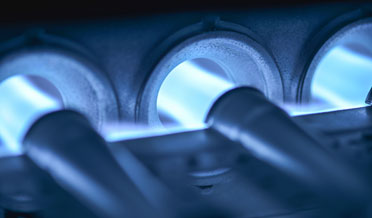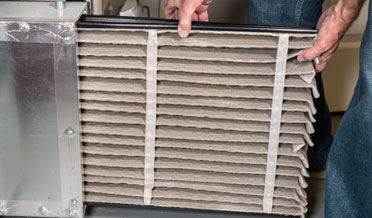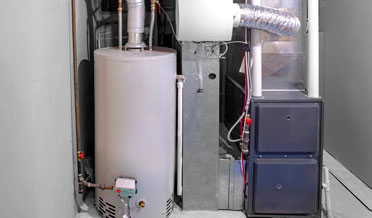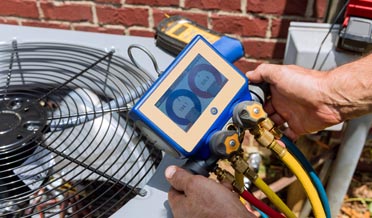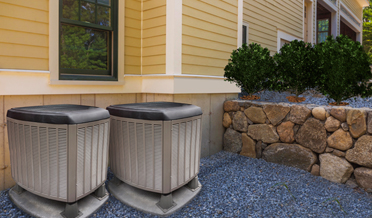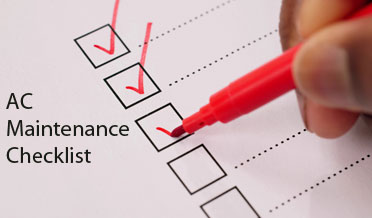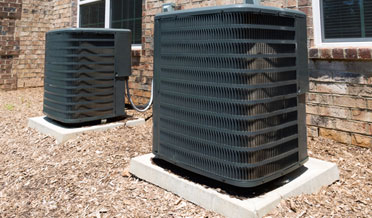A Guide to Natural Gas Furnace Repair
Natural gas heat is a comfortable choice. It produces heat quickly and reliably. When you think about it and use your imagination, it is just a few steps away from a fireplace, and who doesn’t consider a warm fireplace comforting?
Comfortable and cozy fireplaces required a lot of maintenance, bringing kindling and wood in and moving ashes and exhaust out. Natural gas furnaces also require significant care and maintenance, and occasional furnace repair. Here is a list of the most common furnace repair issues required with natural gas furnaces.
Maintenance Tips and Furnace Repair Essentials
1 The Ignition System
Older furnaces had a pilot light, a small flame that constantly burned to ignite the furnace’s burner assembly. Newer furnaces have an electronic ignition system that creates a spark whenever ignition is needed. Separate sensors shut off the gas if a flame is not produced, shut off the gas if the heat becomes excessive, and keep the blower motor running until the heat is dissipated. All these sensors are rather delicate and sensitive to dirt (soot). Careless cleaning can be destructive and harmful.
The presentation of this problem will usually be a system that does not turn on. The solution is a good cleaning by a furnace repair professional trained to clean sensitive parts.
2 The Burner Assembly
The products of burning natural gas are carbon dioxide and water vapor. The burner assembly is cast iron, with extremely small openings that release the gas for combustion. That means that the burner assembly is susceptible to rust corrosion.
If rust creates larger-than-desired holes or creates flakes that interfere with combustion, it creates incomplete combustion and reduced heat output. A technician will need to wire brush the rust away and inspect the burner assembly for corrosion damage.
3 The Heat Exchanger
Remember, burning natural gas creates carbon dioxide and water vapor; incomplete combustion also produces carbon monoxide. The products of combustion cannot be blown into the home, so the furnace uses a heat exchanger. A combustion chamber houses the burner assembly. The hot gas travels through a network of baffles to slow it down. The combustion chamber is surrounded by another closed chamber, the heat exchanger. The blower motor pushes air into this exchanger, where it encounters the hot baffles of the combustion chamber. The air that blows into the home is warm AND safe.
Since the baffle network and exhaust pathway are constantly exposed to hot water vapor, it is important to care for it, watching for rust, corrosion, or cracks that might develop. The technician will err on the side of caution to protect the home’s occupants.
4 The Gas Valve
When a mechanical valve is unchanged for years, it can corrode open (or shut). It is very important to be able to shut the gas supply off, so it is often necessary to replace this valve as a safety precaution.
5 Common Components
All furnaces have common components that require furnace repair and maintenance, as they would in any other type of system. The air filter needs to be changed regularly—at least once every three months. The thermostat is the ON/OFF switch, and it is battery-powered, so the batteries need to be changed annually. The blower motor is the only moving part in the system. It turns a large cage fan, and it moves about 800 to 1,200 cubic feet per minute in most-sized homes. Over time, the blower motor belt may wear and break, or the motor mounts may break.
Homeowners should change the air filter as needed and should change the batteries annually. A furnace repair technician will need to make any other repairs.
Schedule Your Professional Furnace Repair Today
Maintaining the delicate balance of your heating system is essential for both your home’s comfort and your family’s safety. From cleaning soot-covered sensors to inspecting the heat exchanger for dangerous cracks, these complex tasks require the steady hand of a trained professional. Attempting to handle rusted burner assemblies or corroded gas valves on your own can lead to costly damage or hazardous conditions. Our expert technicians have the tools and experience necessary to ensure every component of your natural gas system is operating at peak efficiency. Don’t wait for a small ignition issue to turn into a total system failure in the middle of a cold snap.
Call R.M. Mullinix today at 979-822-4079 to schedule your furnace repair appointment and enjoy the peace of mind that comes with a safe, warm home.
